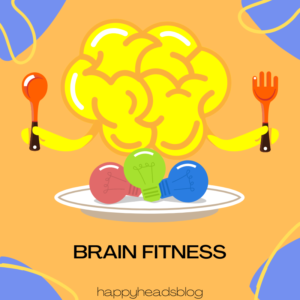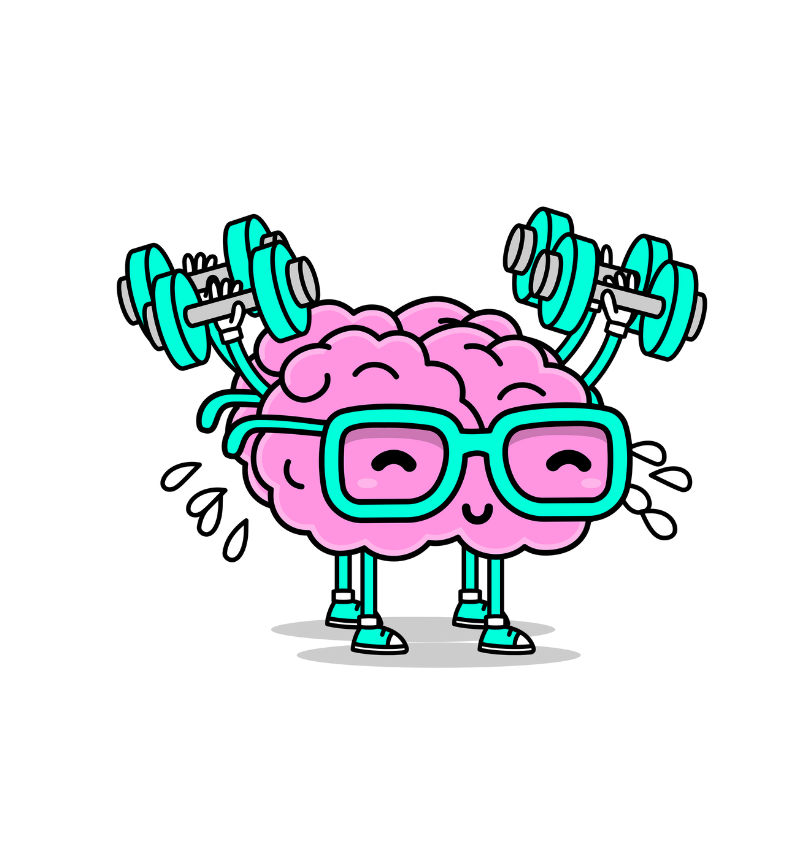The brain is one of the most important organs in the body, responsible for controlling all of our bodily functions, thoughts, and behaviours. Just like any other part of the body, it is important to keep the brain healthy and active to maintain its optimal functioning. One way to do this is through brain exercises.
Brain exercises are activities that are specifically designed to stimulate the brain and improve its cognitive abilities. These exercises can take many different forms, from puzzles and riddles to memory games and brain teasers.
Regardless of the specific activity, the goal is always the same: to challenge the brain and keep it working at its best.
There are many benefits to engaging in regular brain exercises. Perhaps the most obvious benefit is that they can help to improve cognitive function.
Research has shown that engaging in brain exercises regularly can lead to improvements in memory, attention, and processing speed. These improvements can be especially important for older adults, as cognitive decline is a natural part of the aging process.
In addition to improving cognitive function, brain exercises can also have a positive impact on mental health. Studies have shown that engaging in regular brain exercises can help to reduce stress and anxiety, as well as improve overall mood.
This is likely because brain exercises promote the release of endorphins, which are chemicals in the brain that help to improve mood and reduce stress.
The Journal of Neurology Neurosurgery & Psychiatry recently published a fascinating study that followed the physical activity habits of almost 1,500 individuals throughout their adult life, spanning over thirty years.
As per the study’s findings, the participants’ cognitive abilities, verbal memory, and processing speed were tested when they reached the age of 69.
The study uncovered an intriguing finding – while maintaining lifelong physical activity boasts the best cognitive results later in life, even a slight increase in physical activity, regardless of age or frequency, leads to higher cognition, according to the study.
It was surprising to learn that even individuals who began exercising in their 50s or 60s demonstrated better cognitive scores in their 70s. Astonishingly, engaging in physical activity as infrequently as once a month throughout adulthood proved to be helpful.
You can read the study here:
Unusual Brain Exercises
Well, here’s something that’ll catch your attention – combining physical senses with emotional senses to create new experiences can do wonders for your brain!
This incredible blend of vision, smell, touch, taste, and hearing stimulates multiple connections within the brain and triggers nerve cells to produce natural brain nutrients. Sounds fascinating, right?
And that’s not all, it also dramatically improves memory and makes surrounding cells more resilient to aging effects. How about trying out these brain exercises during your morning routine or downtime? Give it a shot and feel the difference yourself!
1. Brainstorming: Set a timer for 10 minutes, and come up with as many ideas as possible for a specific problem. This helps improve creativity and problem-solving skills.
- Ambidextrous writing: Write with your non-dominant hand. This exercise can help stimulate the opposite side of your brain and improve coordination.
- Drawing upside down: Turn a picture upside down and try to draw it. This exercise can help improve your visual perception and spatial awareness.
- Juggling: Juggling requires hand-eye coordination and can help improve your focus and concentration.
- Sensory exercises: Try sensory exercises, such as blindfolding yourself and trying to identify different smells or textures. This can help improve your sensory perception and awareness.
- Playing video games: Playing video games can improve your hand-eye coordination, reaction time, and problem-solving skills.
- Brush your teeth with your opposite hand: Recent studies have shown that this practice can have a significant impact on your brain’s cortex, specifically the areas responsible for processing tactile information from your hand. Not only is it a fun and easy way to challenge yourself, but it also has the potential to create rapid and substantial expansion in certain areas of your brain.
- Reverse Thinking: Instead of approaching a problem or situation with your usual thought process, try to think about it in reverse order. This can help you see things from a different perspective and potentially lead to new insights and solutions.
- Visualisation: Close your eyes and try to vividly imagine a scene or object in your mind. This can be a powerful tool for boosting creativity and memory retention.
- Association: Try to connect seemingly unrelated ideas or concepts in your mind. This can help you make new connections and associations that you might not have otherwise noticed.
- Mental Maths: Challenge yourself to solve maths problems mentally, without using a calculator or writing anything down. This can help improve your mental maths skills and boost your cognitive abilities.
- Mind Mapping: Create a visual diagram of a particular concept or idea, with different branches representing different sub-topics or ideas. This can help you organise your thoughts and see connections between different concepts.
- Creative Writing: Write a short story or poem using a prompt or theme. This can help improve your creativity and help you think outside the box.
Physical Activity
Have you ever thought about the benefits of engaging in regular physical activity? You’ll be surprised to know that it’s not just beneficial for your heart, muscles, and bones, but also for your brain!
Physical activity has the power to boost your cognitive abilities, enhance your problem-solving skills, and improve your emotional well-being. It’s a fantastic way to enhance your memory and alleviate anxiety and depression.
And that’s not all – Regular physical activity can even help reduce your risk of cognitive decline, such as dementia. A recent study revealed that inactive adults have almost twice the risk of cognitive decline compared to those who are physically active.
So why not start incorporating physical activity into your daily routine and reap the amazing benefits for your mind and body?

Are you looking to boost your health and fitness game? Adults can reap the most benefits by engaging in at least 150 minutes of moderate-intensity physical activity each week or 75 minutes of vigorous-intensity activity.
But don’t worry, you don’t have to do it all at once! Divide your workout into manageable chunks, like 30 minutes a day or even smaller bursts throughout the day.
Plus, did you know that muscle-strengthening activities are also essential for adults to maintain their physical well-being?
Make sure to incorporate these activities into your exercise routine at least two times a week. And if you’re 65 or older, balance activities are also crucial for you to do about three times a week. Let’s get moving and feeling great!
Read more here: How Exercise Protects Your Brain’s Health – Cleveland Clinic

- Pump it up: Let’s pump up the energy at home with some exciting dance moves! Swirling and grooving to the beat can be an absolute blast while keeping you physically active.
- Goodbye: Say goodbye to a sedentary lifestyle by adding some fun physical activities to your routine. For instance, why not try squatting or marching in place while streaming your favourite shows? Or test your balance by standing on one leg during the commercial breaks. Trust us, it’s a quirky and entertaining way to stay fit and fabulous!
- Shopping: Make shopping more exciting by parking at the far end of the car park and taking a stroll to the shops. While inside, explore the aisles and burn some calories by walking around the perimeter before grabbing the items you need. Ditch the escalator and take the stairs.
- Goat Yoga: Goat yoga involves performing yoga poses while playful goats roam around and interact with you. It’s a fun and lighthearted workout that can reduce stress and boost your mood.
- Trampoline Fitness: Jumping on a trampoline is a low-impact, high-intensity workout that can burn calories and tone your muscles.
- Hula Hooping: Hula hooping is a fun and playful way to get moving. It’s a great cardio workout that can also tone your core, arms, and legs.
- For a quick cardio boost: If you’re taking the bus, Instead of waiting for your stop, hop off of transit one stop early and enjoy a brisk walk to your destination. Take your daily walk to the next level by carrying hand weights and toning those arms as you enjoy the outdoors. With these tips, getting a workout in can be fun and easy!
- Do you want to have a blast with all your friends together? Well, there’s no better way to do it than by hosting your very own dance extravaganza! Not only will you get to enjoy the company of all your close pals, but you’ll also get to sweat it out, burn calories, and move your entire body on the pulsating beats of the music. Trust me, it’s an incredible way to have fun and stay in shape at the same time! And who knows, you might even discover some hidden talents as you compete against each other to see who can bust the grooviest moves on the dance floor. So come on, let’s get this party started!
- Skipping: Do you recall the good old days when you would get your skipping rope out and your friends would join in? Well, guess what? You can relive those cherished childhood memories while also giving your heart and brain a workout. All you have to do is grab a skipping rope, head over to your garden, or even set up a space in your house with a high ceiling. Once you’re set, turn on your favourite upbeat tunes and start jumping! Trust me; it’s not as easy as it seems, but it’s super fun and enjoyable!
Finally, brain exercises can also help to improve overall quality of life. By keeping the brain active and healthy, individuals are better equipped to perform daily tasks, make decisions, and stay independent. This can be especially important for older adults, who may be at risk for cognitive decline and dependence.
In conclusion, brain exercises are an important tool for maintaining optimal cognitive function and overall brain health. By engaging in regular brain exercises, individuals can improve memory, attention, and processing speed, reduce stress and anxiety, and improve overall quality of life. So the next time you have some free time, consider engaging in a brain exercise – your brain will thank you for it!
